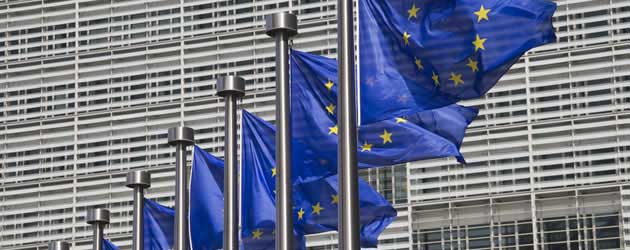
The Euro fell against its main counterparts today as US GDP trailed economic forecasts and Spain negatively revised its growth forecasts.
The Euro Exchange Rate was in the region of 0.8409 against the British Pound as of 14:10 GMT
Although economists estimated that the US economy would grow by 3 per cent in the first quarter of this year, the world’s largest economy only posted growth of 2.5 per cent – despite the biggest increase in consumer spending for two years.
Meanwhile Spanish Prime Minister Mariano Rajoy announced that he is attempting to procure a further two years in which to tackle his nation’s hefty budget deficit. Initial estimates for economic contraction of 0.5 per cent for 2013 were also negatively revised to 1.3 per cent.
As economist Robert Wood noted: ‘Spain faces big risks. The capacity to react to further economic deterioration is much more limited now than it was a couple of years ago so it’s pretty important growth returns sooner rather than later.’
In other Euro news, one optimistic individual asserted that the European Central Bank’s Outright Monetary Transactions bond buying programme may never have to be used again as the worst of the financial crisis is now behind the Eurozone.
In a recent interview George Provopoulos, head of the Greek central bank and member of the ECB council, stated: ‘Given that in the last few months we have had a kind of stabilization, normalization, maybe it will never be used. OMT has helped enormously. It is a good thing that we have decided to go ahead with that, just in case it would be needed. I think the worst of the debt crisis is behind us. This does not mean that all weaknesses have been dealt with or that the road ahead will be without bumps. But I think the worst is over.’
Given the stream of poor economic data for the Eurozone that’s been released this week some might consider Provopoulos a little over-optimistic, however there was some good news for the 17-nation currency bloc today.
European Central Bank deposit figures indicate that the Cyprus crisis, in which depositors feared for their funds and bank accounts were frozen, has not spread beyond the island nation.
According to one industry experts, March’s banking deposit figures ‘suggest little contagion from the Cyprus bail-in of uninsured depositors to other Eurozone countries – which will probably cause a sigh of relief in Brussels. In fact, private-sector deposits in most other peripheral Eurozone countries saw further signs of recovery in March. Consumers and firms’ deposits at banks in Spain and Portugal rose by 0.9% and 0.6% month on month respectively, while Greek bank deposits edged up by 0.1%.’
Meanwhile, relief regarding the positive developments in Italy’s political situation helped an Italian Bond auction to go off well, with yields at record lows.
Although the expectation that the ECB might issue a rate cut next week was partly responsible for the high demand, the news that newly instated Prime Minister Enrico Letta has had encouraging discussions regarding forming a government was also a contributing factor.
Silvio Berlusconi has ruled himself out of being a minister, but industry experts are still speculating that a new government could be sworn in over the weekend.
Current Euro (EUR) Exchange Rates
< Lower > Higher
The Euro/US Dollar Exchange Rate is currently in the region of: 1.3012 <
The Euro/Pound Sterling Exchange Rate is currently in the region of: 0.8409 <
The Euro/Australian Dollar Exchange Rate is currently in the region of: 1.2666 >
The Euro/ New Zealand Dollar Exchange Rate is currently in the region of: 1.5285 <
The US Dollar/Euro Exchange Rate is currently in the region of: 0.7693 >
The Pound Sterling /Euro Exchange Rate is currently in the region of: 1.1895 >
The Australian Dollar/Euro Exchange Rate is currently in the region of: 0.7898 >
The New Zealand Dollar/Euro Exchange Rate is currently in the region of: 0.6539 >
(Correct as if 14:10 GMT)

Comments are closed.